Beijing Subway Bans Halloween Costumes
The Chinese capital banned Halloween costumes from its subway system, warning they could cause “panic” and “stampedes.”
The Chinese capital banned Halloween costumes from its subway system, warning they could cause “panic” and “stampedes.”
Dan Garrett, a gnarled, tattooed former Pentagon intelligence analyst, has attracted more stares than usual lately when he prowls the streets here with a camera fitted with a 300-millimeter lens, snapping images of pro-democracy demonstrations,...
“American slaves were liberated in 1861, but did not get voting rights until 107 years later,” she was reported as saying by The Standard, an English-language Hong Kong newspaper. “So why can’t Hong Kong wait for a while?”
The most tenacious protests since the former British colony returned to Chinese rule in 1997 have already persisted beyond most expectations.
The new policy hopes to curb problems in administration and law enforcement such as failure in strictly observing or enforcing the law, putting their power above law, bending law for personal gains and power-for-money trades, Xi Jinping said.
Since the return of Hong Kong to China in 1997, less than a year after I was born, the people of this city have muddled through with a political system that leaves power in the hands of the wealthy and the well-connected.
As the curtain fell on a key meeting on rule of law on Thursday, Israeli Yuval Golan, 29, felt good about his business prospects in what should be a more transparent and predictable China.
By September 29 peaceful protesters had been clogging Hong Kong’s downtown for less than a day, but to the Chinese Communist Party this already smacked of ingratitude.
Beginning in the 1950s, the colonial governors who ran Hong Kong repeatedly sought to introduce popular elections but abandoned those efforts in the face of pressure by Communist Party leaders in Beijing.
The referendum boiled down to two simple questions: Did voters endorse demanding that the Hong Kong government press Beijing to make democratic concessions on election rules, and did they agree that the changes should apply to city Legislative...
“It’s a mild, breezy, accessible, feel-good drama which really pictures China as a harmonious, wonderful place where conflicts of various stripes—across age, class or geographical divides—could easily be reconciled,” said Clarence Tsui, a film...
The comedy Money on the Road (Money Found on the Way in Chinese) features an ensemble of stars, including a cameo by the famous singer...
To run or not to run? That was the question faced by entrants in Sunday’s Beijing marathon, as they awoke to find hazardous levels of pollution engulfing the city.
In an interview with The New York Times, Chief Executive Leung Chun-ying hinted at possible intervention by the central government if the situation remained unresolved.
Thomas Sauvin estimates that he has sifted through more than half a million images, taken by ordinary citizens, between 1985 and the early aughts, that depict everyday life, leisure, and travel, both in China and abroad.
“There is obviously participation by people, organizations from outside of Hong Kong,” Chief Executive Leung Chun-ying said in an interview on Asia Television Ltd.
“China has clear signs of ‘froth,’ if not a bubble, in housing,” says Goldman Sachs. It looks reminiscent of the bubbles in Japan in the early 1990s and the U.S. from 2006 to 2010, it says—and finds China might turn out differently.
Pro-democracy protests took a violent turn in Hong Kong, as police officers clashed with demonstrators in the territory's Mong Kok neighborhood.
C.Y. Leung explains the protests that continue to paralyze parts of Hong Kong, after thwarting a police crackdown over the weekend: they are being supported by “external forces."
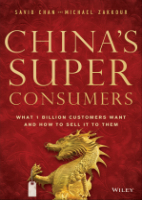
China has transformed itself from a feudal economy in the 19th century, to Mao and Communism in the 20th century, to the largest consumer market in the world by the early 21st century. China's Super Consumers explores the extraordinary birth of consumerism in China and explains who these super consumers are. China's Super Consumers offers an in-depth explanation of what's inside the minds of Chinese consumers and explores what they buy, where they buy, how they buy, and most importantly why they buy.
Maids from Indonesia and the Philippines are an indispensable part of the Hong Kong’s vibrant economy and society. But incidents of abuse often stay hidden from public view.
As Hong Kong's pro-democracy protests wane, what will become of the iconic artwork Umbrella Man, the Lennon Wall of sticky notes and all the banners?
Hundreds of police with power tools tore down protesters’ barricades on Queensway in Admiralty, following a swiftly executed dawn operation to remove a number of blockades in Causeway Bay.
Masked men attacked pro-democracy protesters for the second time in as many weeks on the morning of October 13th near Hong Kong’s Admiralty business district.
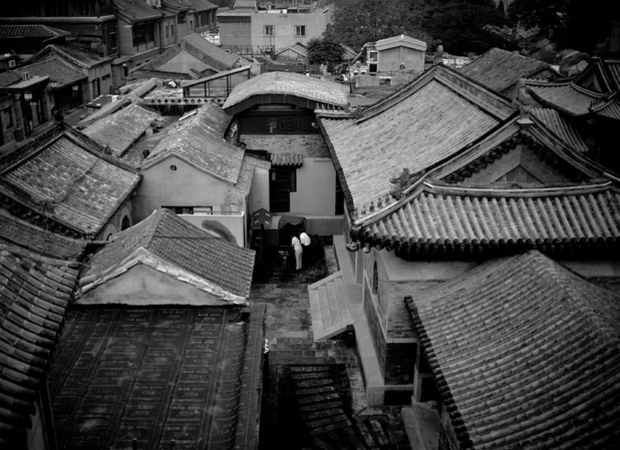
This week on Sinica, Kaiser and Jeremy are joined by Colin Chinnery from the Beijing Sound History Project, a recording project that aims to preserve the distinctive clangs, songs, and shouts of traditional Beijing life. In addition to sampling...
The next surprise for the protesters came as assaults from members of the mafia, posing as ordinary citizens. We now have enough evidence that the Anti-Occupy Central crowd, emblazoned with blue ribbons, can count on the government’s support, if...
Former Los Angeles Times Beijing bureau chief Barbara Demick tells us the Hong Kong protests are Not Tiananmen, show Broken Promises and reveal Hong Konger's Basic Complaints.
"The People's Republic of Amnesia" author Louisa Lim talks with Stephen Colbert about the growing civil unrest in Hong Kong and China's efforts to contain it.
Similarities to the protest and crackdown at Tiananmen Square have indeed been striking -- and unnerving, given the outcome of that beautiful and terrible spring.
The sale allows the companies to “finally maximise the full value of this iconic asset on a full city block in midtown Manhattan,” said Christopher Nassetta, chief executive of Hilton Worldwide.
The student federation said it would not end the protests as no progress had been made on political reform and because the police had yet to address their handling of violent attacks on protesters.
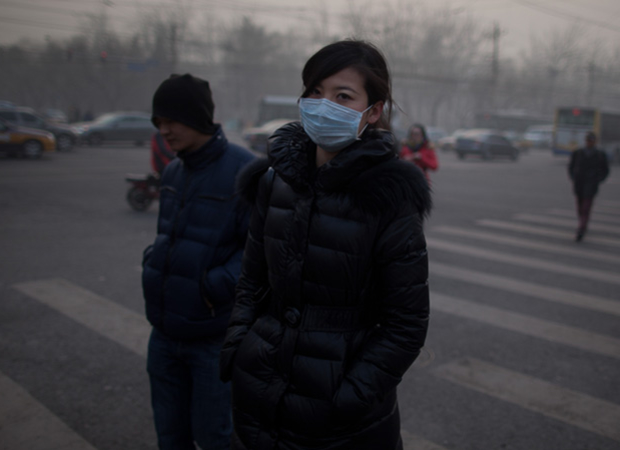
“Mommy, why don’t I wear a face mask?” asked my nine-year-old daughter Maggie nearly every day during the first few weeks of school. Two of her expat classmates had been in Beijing less than a year, but it seemed as if they wore theirs all the...
The biggest of China's some 85,000 property developers are the only ones likely to benefit from this credit loosening. Authorities have been trying to streamline the number of companies as part of economic overhauls.
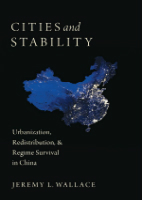
China's management of urbanization is an under-appreciated factor in the regime's longevity. The Chinese Communist Party fears "Latin Americanization"—the emergence of highly unequal megacities with their attendant slums and social unrest. Such cities threaten the survival of nondemocratic regimes.
In a recent People's Daily op-ed, pet dogs are referred to as a “crude and ludicrious imitation... of a Western lifestyle” and a blight on “social peace and harmony.”
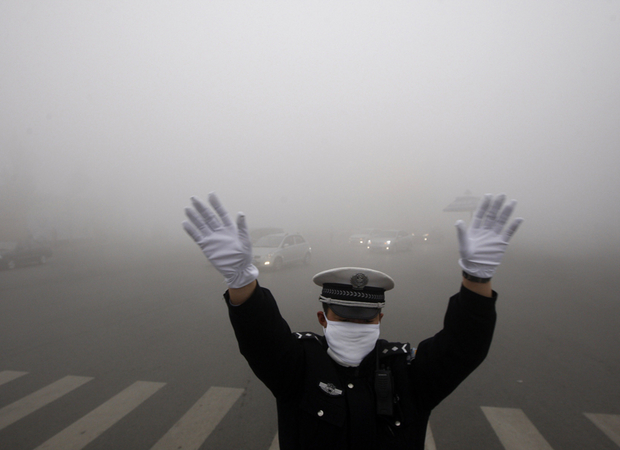
It seems counter-intuitive that publicly available data needs grassroots activists to make it accessible. Yet, in a sea of regulations and information, official environmental information can be difficult to parse.
The risk of information...
A dream, in the truest sense, is a solo act. It can’t be created by committee or replicated en masse. Try as you might, you can’t compel your neighbor to conjure up the reverie that you envision. And therein lies the latent,...
Beijing’s Municipal Environmental Protection Bureau posted the plan on its website Monday, saying the city would instead prioritize electricity and natural gas for heating.
The new rules only make it easier for formerly rural hukou holders to move to small, backwater cities, not the vibrant mega-cities along China’s eastern coast where the vast majority of migrants are.
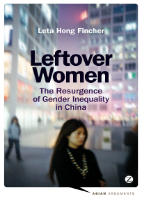
A century ago, Chinese feminists fighting for the emancipation of women helped spark the Republican Revolution, which overthrew the Qing empire. After China's Communist revolution of 1949, Chairman Mao famously proclaimed that "women hold up half the sky." In the early years of the People's Republic, the Communist Party sought to transform gender relations with expansive initiatives such as assigning urban women jobs in the planned economy. Yet those gains are now being eroded in China's post-socialist era.
China State Council said it plans to help about 100 million people without urban ID records to settle in towns and cities by 2020 in a reform of the nation's household registration, or "hukou," system.
"Smart money" checking the exit is a bad omen for any market, especially one considered frothy after a five-year record-breaking bull run, but analysts say there is no reason for alarm yet.
McDonald's and KFC in China faced a new food safety scare after a Shanghai television station reported a supplier sold them expired beef and chicken.
At Asia’s biggest rail cargo base in Chengdu in south-west China, the cranes are hard at work, swinging containers from trucks onto a freight train. The containers are filled with computers, clothes, even cars.
Beijing's average PM2.5 index of 91.6 micrograms per cubic meter in first half of 2014 represents an 11.2 percent year-on-year decrease.
A Chinese millionaire treated 250 homeless New Yorkers to a feast and karaoke rendition of “We Are the World” in Central Park today, but pretty much everyone left the event totally totally disappointed.
Chinese builders have ambitious designs on erecting the world’s tallest skyscraper, soaring more than more 3,000 feet into the heavens.
China has at least more than 30 million more men than women. As a result, finding a girlfriend there is extremely difficult.
The Chinese performance artist Han Bing recently dragged a cabbage through city centers as a social commentary on people’s relationships with objects in their lives.
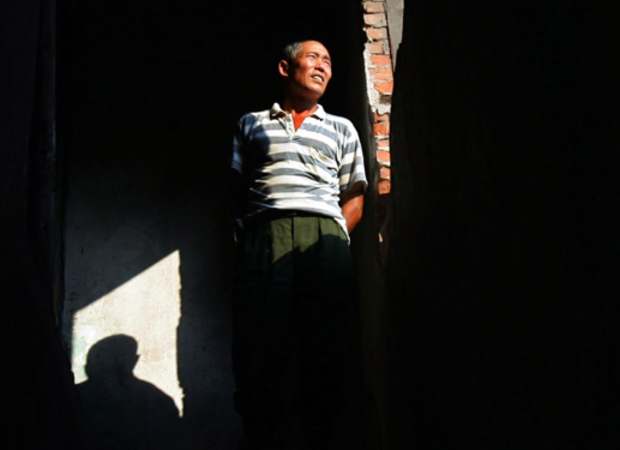
A generation of Chinese people from rural areas who moved to the big cities to find work is reaching retirement age, but many are finding they have been left outside the country's urban pension system despite extensive reforms in recent years....
Chongqing, Shiyan, Yichang, Lanzhou and Yan’an. All belong to the “Yellow” China, a parched region tormented by a complicated geography that severely limits almost all human activities, such as farming, communications, construction or industry....
Beijing has deployed an anti-terrorism force of about 850,000 urban volunteers to patrol its streets following recent terrorist attacks across the country.
In my few years of photographing old houses around Shanghai, I have never been this buoyant over lattice woodwork in its original setting.
The perpetrators were six members of a religious cult, including a middle-age man, his two grown daughters and his 12-year-old son, who became angry when refused a phone number.
Only three cities, or 4.1%, of the 74 major Chinese cities subject to air quality standards met the national standard for good air quality in 2013.
While studies have shown some success from these measures, the fact that this bigger ban is being proposed is perhaps a sign it wasn't enough.

From abroad, we often see China as a caricature: a nation of pragmatic plutocrats and ruthlessly dedicated students destined to rule the global economy—or an addled Goliath, riddled with corruption and on the edge of stagnation. What we don’t see is how both powerful and ordinary people are remaking their lives as their country dramatically changes.
